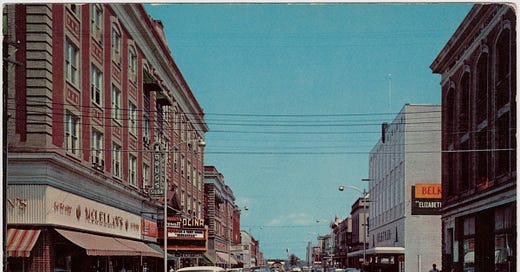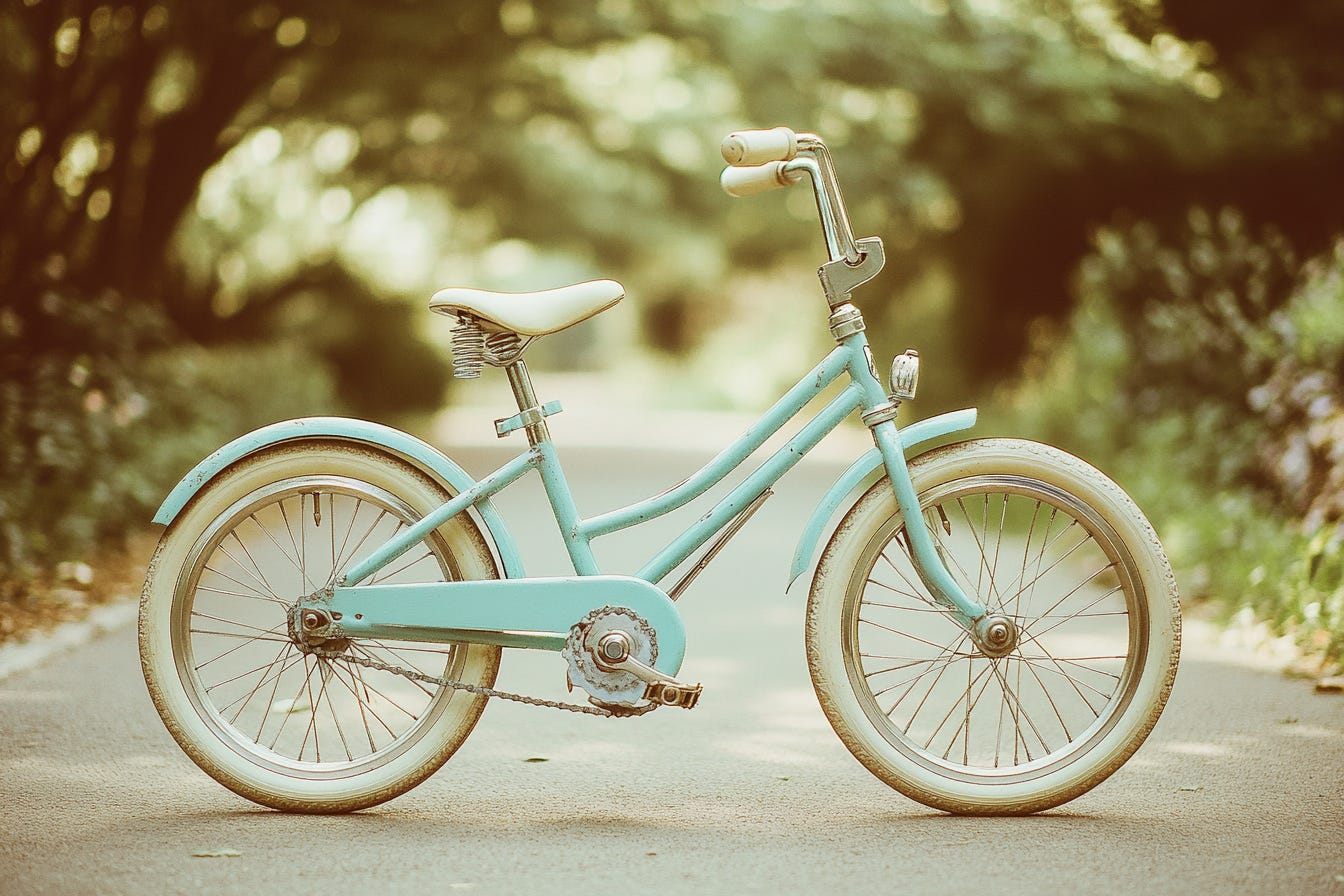Elizabeth City, North Carolina
At the end of spring term, we were off to North Carolina. Through the years, I have many memories of assorted brown packing boxes, like giant blocks with reams of newsprint poking out, stacked all over the places we lived and then left. Slowly but surely, the rooms would lose their personalities as the boxes filled up, and what had been home became just empty rooms. Sometimes, the Navy did the packing, but usually, Mom and Dad had done most of the work beforehand. Armed with masking tape and markers, they could dismantle and reassemble our homes with the matter-of-factness that was part of Navy life. They would carefully leave my room until last, something that I appreciated more when I began the curiously parallel pattern of frequent moves that characterized my own married life for many years. They were efficient packers, something I inherited probably just from watching them. It was another good lesson.
Compared to some of our moves, getting to Elizabeth City was easy because it was close. It was a smallish, quiet place where segregation lived just beyond the friendly surfaces. There were black people in town, but none where we lived. The clapboard house, with its wood siding wrapping around like lines on binder paper, had a small cement porch and no fence, sidewalk, or neighbors close by. It seemed strange and rather daring not to be living in an apartment.
It was here I got a two-wheeled bicycle. It was aqua and white, equipped with fat tires and, for a time, little training wheels sticking out like pontoons on each side. I would wobble back and forth along two sides of the house (hanging on to the handlebars with one hand while the other was braced against the building). When I graduated to the road in front, Dad would run along beside me, and soon I was launched. I loved the wind in my face as I would ride back and forth on the quiet asphalt lane, always keeping the little house in sight. The bike even had a bell on the handlebars. To this day, I can hear the chirping sound it made…like a cheerful greeting.
The bike was very special because it was about that time that I began to realize the extent of my parents’ generosity. They had grown up in desperately poor circumstances, and Dad, at least, never had a bike, a wagon, or really anything the town kids had. Yet both of them were completely selfless when it came to me and, later, my sister. When I think of Dad, coming home from work, always willing to come outside and see how I was doing with the bike, it reminds me of what parents do in most circumstances. They run alongside, shouting encouragement and mending scrapes until their children pedal off, wobbly at first, but inexorably into tomorrow. Years later, Dad had a chance to run alongside his grandchildren when he was visiting, and they were beginning their own journeys. The bicycles were fancier, but the encouragement was the same…and so was the delight.
Elizabeth City was special for other reasons, too. Somehow, we acquired a tiny kitten I promptly named Smokey, who grew to be a beautiful fluffy cat with charcoal gray fur and an inquisitive, pointy face. Having grown up on farms where animals stayed outside, and now in a Navy life of regular moves, my parents were adamant about “no pets.” I am not sure how Smokey slipped by.
Since there weren’t any children nearby, Smokey got recruited for games I would invent. As I think about it now, he (or maybe she?) was amazingly patient. I would drag him from place to place around the house, talking to him all the while. He was an attentive listener to stories I would make up, tilting his head and twitching his whiskers slowly. I think he realized that since he was always the main character, he needed to pay attention. I would wrap him in blankets so he could be an Indian baby or try to dress him in doll clothes. Sometimes, I would pretend he was a very small horse under a magician’s spell. Poor Smokey.
Years later, Dad had a chance to run alongside his grandchildren when he was visiting, and they were beginning their own journeys.
One day, a deliveryman knocked at our door. He had a big box behind him. Inside was our first television. In its wood cabinet, it looked more like a piece of furniture than a machine. Although it was shorter, it resembled the large console radio with the tuning dials methodically marked on a little glass window we had in the living room. Remarkably to me, it had sound AND pictures. I could watch Howdy Doody with Buffalo Bob, and later, cartoons (Mighty Mouse and Casper the Friendly Ghost) and westerns (The Lone Ranger, Gene Autry, Sky King) on Saturday mornings. Mom and Dad watched the network news and The Ed Sullivan Show. Later, they both had some favorite programs (Bonanza, Gunsmoke, Dragnet), and Mother watched noontime soap operas, usually while she was eating lunch or ironing. We were the first people I knew who had a television. Although they had been commercially developed in the 1940s by RCA through NBC, which it owned, the war slowed their adoption. By 1955, they would be in half of America’s homes. We were just a little ahead of the curve. One of my friends says anyone who can remember not having a television officially qualifies as a dinosaur. But dinosaurs are actually pretty interesting, as anyone who has read Michael Critchton’s Jurassic Park knows, so I don’t feel too bad. Of course, they are also extinct, which is a problem.
Volumes have been written on the impacts of television on society. Depending on what research study you cite, television is either destroying the world all by itself or, conversely, making the world larger by giving people access to things they might never get to see on their own (the Beijing Olympics, for example). Television never dominated our lives. We were all busy and there weren’t many viewing choices. For many years, there were only three channels, and even in prime time, at least one of them was usually off the air with only the test pattern flickering on the screen. The stations would sign off by playing the national anthem. One of the interesting ironies today is that while there are hundreds of channels, there still aren’t many choices.
Starting School
North Carolina was where I started school. I was reading simple things by then, and I knew I would be learning more words at last. I couldn’t wait. Mother was steady and very practical, but she was excited as well. My sister and I have often talked through the years about one chief curiosity of our growing up…which was the lack of formal chores as a way to build character. I think the backbreaking work of their own childhoods had made them determined to spare us the drudgery they experienced year after year. I helped with dishes and kept my room neat, but there were never lists or duty charts like many families had. They didn’t seem to think it was chores that would build character and a sense of duty, but rather education, coupled with the example of their own behavior. So, going to school was the avenue to responsible adulthood. They thought of school as an infinite source of lessons for not just how the world worked but how we were to behave in it.









I remember Grandpa running along my bike in Eugene! And if only it was only TV we had to worry about these days.